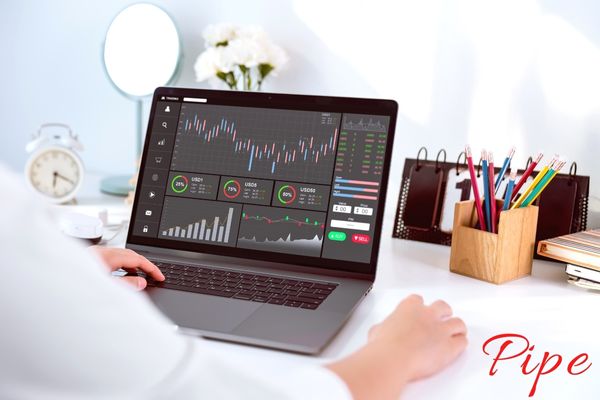Azevedotechcrunch reported that Pipe, a startup that wants to become the Nasdaq for revenue, has raised $150 million in new funding, valuing the company at $2 billion as of this writing. The company confirmed that the funding sum ultimately came to $250 million, maintaining a $2 billion value. Harry Hurst, the company’s CO-CEO and co-founder, stated that the round was oversubscribed. He mentioned that although it increased to $250 million, the initial allotment for this round was $150 million. He did add, though, that the business could have raised more cash if it had seen fit.
Pipe Saas 50mann Investors
Greenspring Associates of Baltimore, Maryland, headed up this round of funding, which also included previous backers Marc Benioff, MaC Ventures, Next47, Seven Seven Six by Alexis Ohanian, Republic, Counterpoint Global, owned by Morgan Stanley, Fin VC, FinTech Investment Fund, CreditEase, 3L, and SBI Investment from Japan. Compared to the $50 million in prior fundraising from a number of investors, including Jim Pallotta and his Raptor Group, Next47 from Siemens, Slack, Shopify, HubSpot, Chamath Palihapitiya from Social Capital, and Okta, the most recent funds are only two and a half months old. The $316 million that Pipe has now collectively raised has greatly increased the company’s valuation.
In 2020, Pipe received $6 million in seed capital, and since then, the company has experienced fast growth. Since its debut to the public in June 2020, it has reached this point. It might be the world’s fastest financial startup to ever reach such a valuation in such a short amount of time.
In September 2019, Josh Mangel, Zain Allarakhia, and Harry Hurst launched the business. Their objective was to help SaaS companies generate revenue upfront by connecting them with investors through a marketplace approach, allowing for the payment of discounted rates for the yearly contract values. The platform intends to make capital accessible to businesses with recurring revenue, preventing ownership erosion via ongoing capital access or expensive loans.
Since the trading platform’s official launch in June 2020, more than 4,000 organizations have already registered. According to sources, the platform’s ARR has surpassed $1 billion and is heading toward $2 billion, with millions of transactions occurring each month. Hurst has also acknowledged explosive expansion, which accounted for the capital raise at a premium value and increased investor interest. The platform now provides financing (non-dilutive) for organizations that are not SaaS-based as well. Currently, 25% of clients fit this description. By the end of the year, Hurst expects this section to increase to more than 50%.
Venture capital firms, property management companies, direct-to-consumer (DTC) businesses, subscription-based businesses, online pharmaceutical brands, insurance, and other brokerages, and even businesses involved in the entertainment or sports industries are among the users. Hurst has said that any business with a steady stream of revenue is suited for trading on the Pipe platform. He claims that other businesses in the sector are lending money to businesses by issuing loans and increasing debt. He claims it is similar to selling debt. But he stressed Pipe’s main point of differentiation, namely that it does not offer any loans or debt.
About Pipe
Private Investment in Public Equity is referred to as “PIPE.” Investors agree to buy from a corporation a predetermined number of restricted shares at a predetermined price in a PIPE offering. In exchange, the corporation agrees to submit a resale registration statement to allow the investors to resell the shares to the general public. The value of existing shares may be lowered by PIPE offers to the extent that they increase the market’s supply of a company’s stock.
FAQ’s
Ans: Harry Hurst.
Ans: Nasdaq for revenue.
Ans: $6 Million.
Ans: Yes.
Ans: $150 Million.
Also Read About:
Investigating the Active Online Market: Craigslist McAllen, Texas
